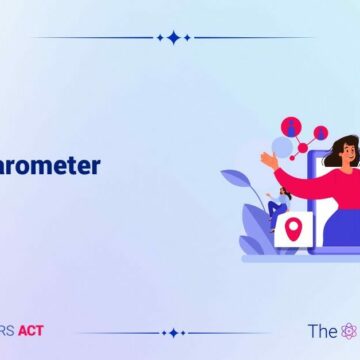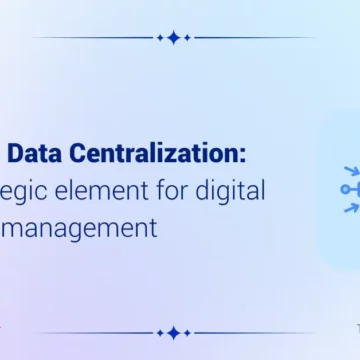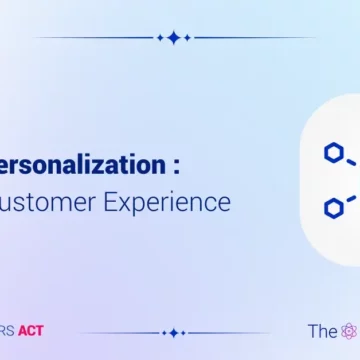Unveiling Modern Attribution: Key Strategy for Data Marketers
30/03/2025 |
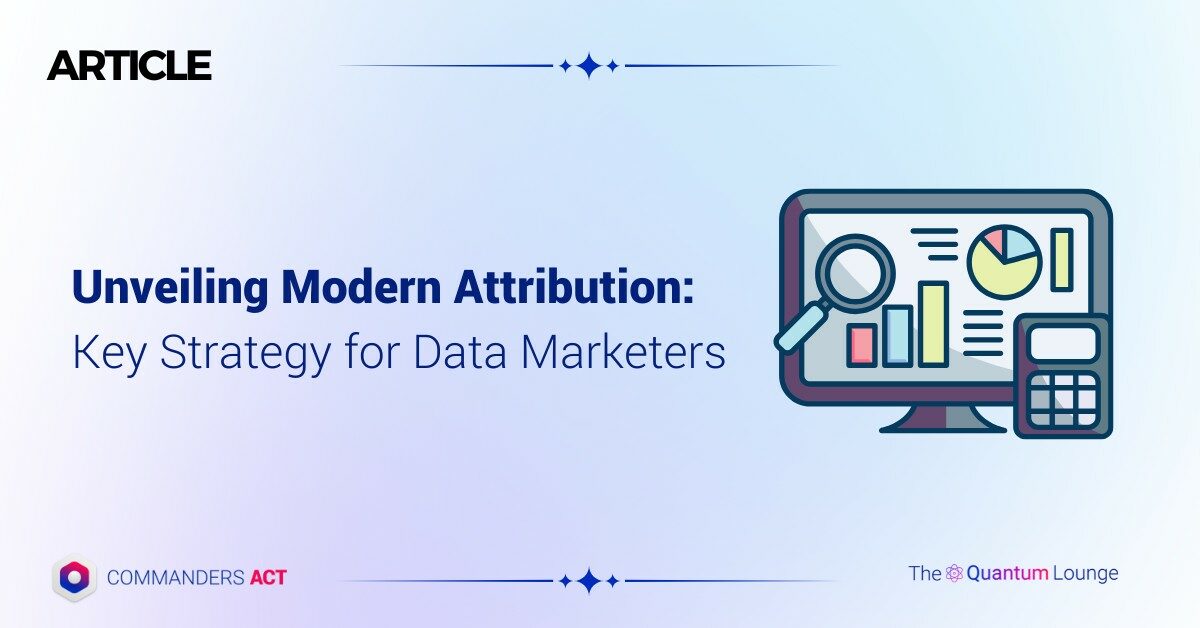
Understanding how customers interact with your brand across multiple channels is key to optimizing marketing performance. Data driven attribution has become an essential part of marketing strategy, enabling businesses to make smarter, evidence-based decisions. This article breaks down what data driven attribution is, how it works, and how marketers can apply it to drive better outcomes.
What is Attribution Theory in Marketing?
Attribution theory in marketing explains how value is assigned to different touchpoints along the customer journey. When a customer makes a purchase or completes a conversion, attribution helps marketers identify which interactions had the most influence. This insight is vital for allocating budget, refining campaigns, and understanding customer behavior. In order to understand and optimize ROAS, attribution is your friend and most reliable ally.
Attribution describes how people explain causes of behavior and events. In marketing, it refers to the methodology used to assign credit to specific marketing interactions that led to a desired outcome. Whether a customer first clicked on a paid ad or converted after receiving an email, attribution theory guides how those interactions are evaluated.
What is a Marketing Attribution Model?
A marketing attribution model is a set of rules or algorithms that determine how credit for conversions is distributed across touchpoints. Common models include:
- First-touch attribution: All credit goes to the first interaction.
- Last-touch attribution: Full credit is given to the last interaction.
- Linear attribution: Equal credit is assigned to all touchpoints.
- Time-decay attribution: More recent interactions receive more credit.
- Position-based attribution: A blended approach that favors first and last touchpoints.
Each model offers a different way to view attribution, but they share a limitation: they rely on predefined assumptions.
Data Driven Attribution Model
Unlike outdated models, data driven attribution models use algorithms and actual user data to assign credit based on proven impact. These models learn from patterns in conversion data and identify which touchpoints statistically contributed most to each conversion. Through analytics and artificial intelligence, they provide a more complete and nuanced view of what’s truly influencing customers.
How Does Data-Driven Attribution Work?
Data-driven attribution starts with robust data collection across all marketing channels. Advanced statistical models or machine learning algorithms then analyze conversion paths to determine the likelihood that specific touchpoints contributed to the outcome. These insights are continuously refined as new data flows in, ensuring that attribution remains dynamic and accurate.
Is it possible to calculate Marketing Attribution?
Absolutely, and it is crucial even. In order to do so, a data-driven model is necessary, marketers should:
- Capture comprehensive user journey data, which include clicks, impressions, website behavior, and conversions.
- Analyze conversion paths, identify recurring sequences and interactions that lead to conversions.
- Apply algorithmic modeling with tools that apply probabilistic or machine learning models to assign value.
- Evaluate performance by comparing insights over time to optimize campaign strategies.
Platforms with strong attribution capabilities help automate these steps, enabling marketers to move from raw data to strategic insight.
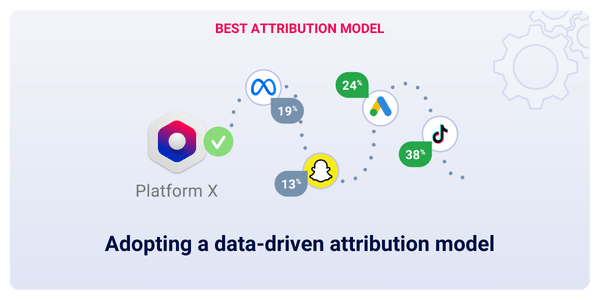
How to boost attribution thanks to PlatformX
What Are the Two Types of Attribution?
Attribution can generally be categorized into:
- Single-touch attribution (STA): Attributes a conversion to one key touchpoint, either the first or the last.
- Multi-touch attribution (MTA): Distributes credit across all meaningful touchpoints in the journey.
Data driven attribution is a form of multi-touch attribution, but instead of using arbitrary rules, it relies on actual data to assess impact.
What Does Attribution mean data-wise?
In data analysis, attribution refers to assigning a cause (e.g., a marketing action) to an effect (e.g., a conversion). It’s about drawing meaningful connections between actions and results. Effective attribution turns complex user journeys into actionable insights, helping marketers optimize based on what truly drives performance.
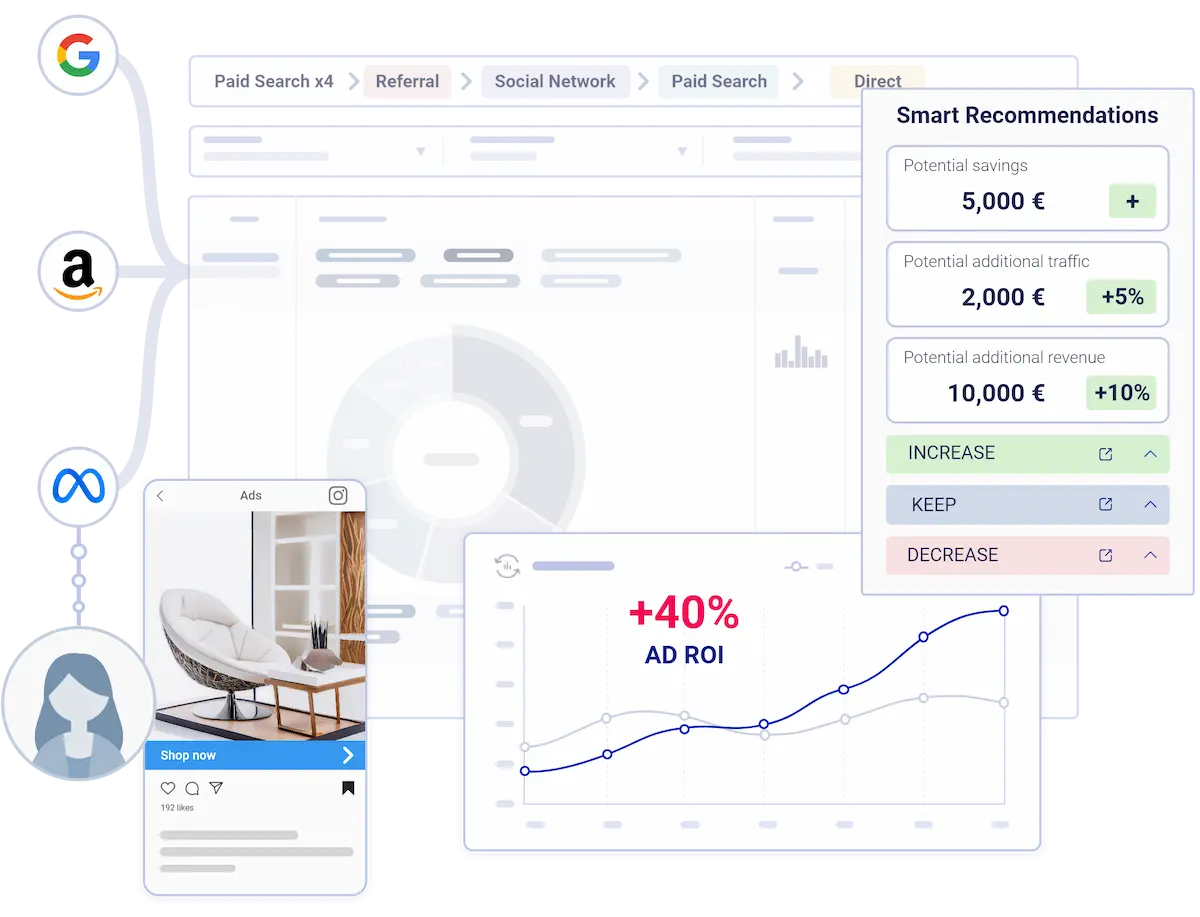
Data driven attribution empowers marketers to make informed decisions, reduce waste, and fine-tune campaigns with precision. By understanding the real drivers behind conversions, brands can move beyond guesswork and invest where it counts. Whether you’re just getting started or refining your strategy, embracing data driven attribution is a critical step toward marketing maturity.
Keep exploring attribution strategies, stay curious about your data, and let analytics guide your next big marketing decision.
